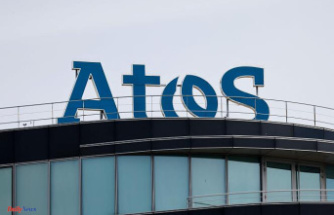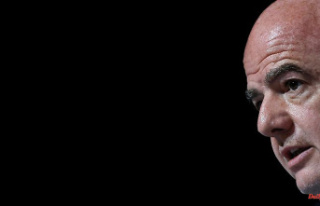The announced interest rate hike by the US Federal Reserve continues to concern investors on Wall Street. Even at the end of the week, the prices are no longer in the red. Fears of an economic downturn are also reflected in oil prices.
Economic worries about shattered hopes of an end to US interest rate hikes drove Wall Street into the red again today. The Dow Jones index of standard values closed 0.9 percent lower at 32,920 points. The tech-heavy Nasdaq fell one percent to 10,705 points. The broad S
At its most recent meeting, the US Federal Reserve decided to slow down interest rate hikes. At the same time, she emphasized that the fight against inflation is not over yet. "There is concern that if the Fed continues to hike rates, the economy will continue to slow," said Robert Pavlik, portfolio manager at wealth manager Dakota Wealth. The US purchasing managers' indices published today have further strengthened the fears. "The speed at which the numbers are declining is worrying."
Yields on long-dated government bonds fell more sharply than those on short-dated bonds due to growing concerns about interest rates and the economy. This deepened the inverted yield curve - a market indicator of a looming recession. The two- and ten-year US government bonds yielded 4.172 percent and 3.464 percent, respectively. Long-term interest rates are usually higher than short-term interest rates.
In addition, the great decline on the futures markets kept stockbrokers on their toes. "In the run-up to the monetary policy decisions, numerous positions with put options were built to protect the portfolios from losses, which can now probably be settled in profit," said Konstantin Oldenburger, market analyst at trading house CMC Markets. The last week of trading before the Christmas holidays will then show whether the optimists will recover from the setback or whether the pessimists can start the new year with an advantage.
On the commodity market, too, interest rate hike speculation fueled fears of an economic downturn and falling demand. Brent crude oil from the North Sea fell 2.6 percent to $79.09 a barrel (159 liters). The US variety WTI lost 2.4 percent to $ 74.29 per barrel.
In terms of individual values, a safety test sent the shares of the US automaker General Motors (GM) plummeting. The papers slipped by 3.9 percent. The US Transportation Safety Administration (NHTSA) has launched an investigation following reports of incidents in which GM's self-driving taxis "braked unreasonably hard or stalled themselves." At the same time, Facebook parent Meta gained 2.8 percent after a buy recommendation from investment bank JP Morgan.
The software house Adobe also gained around three percent according to quarterly figures. An insider report of more job cuts at US investment bank Goldman Sachs (GS) sent the stock plummeting. The papers lost one percent to $ 346.35. According to a person familiar with the matter, the wave of layoffs is an attempt to master the difficult economic situation. GS headcount will remain above pre-pandemic levels of 38,300 after the job cuts. At the end of the third quarter, the bank employed around 49,100 people. The plans follow the elimination of around 500 GS positions in September.












